
Death Was Arrested

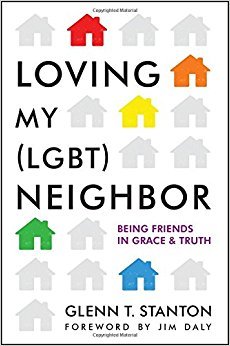
Loving My (LGBT) Neighbor

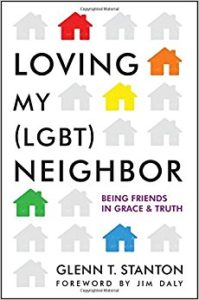
He brought the noted author, journalist, and gay rights advocate, Jonathan Rauch, to Focus on the Family Headquarters to address the staff and dialogue together. Stanton stresses the importance of relationship and dialogue. Homosexuality and LGBT issues are increasingly mainstream in our society. Stanton stresses that the Bible calls each generation to understand the peculiarities of its culture in order to better serve it. As the church trips and stumbles in our new culture, it is more and more important to understand one another. Stanton says we need to “step out of the safe, neat Christian boxes” and cultivate relationships with those who are LGBT. He challenges us to build relationships and friendships solely for that purpose. While we should always be willing to share the Gospel, these relationships are not simply for that, but to understand and relate together as fellow humans.
In the book, he shows that the stereotypes we see of the LGBT community harm them much like the stereotypes of the Christian community are an unfair representative of us as a whole. He challenges us to move in from extremes, stereotypes, and preconceptions, and embrace relationship and friendships despite our differing viewpoints.
I appreciated the chapter where he discusses human sexuality. His beliefs are Biblical and are undoubtedly at odds with the LGBT movement, but he frames this by highlighting other sins addressed equally in the Bible—lying, arrogance, pride, and scoffing—and challenges us as Evangelicals to not elevate one sin as more sinful than another. He stresses that the universal desire for intimacy is the root of sexual sin. He reminds us that all people are created in God’s image and have “equal dignity and value.”
I also appreciated his discussion regarding some tough questions we deal with as society such as public restrooms, relating to friends or family who are gay, and whether or not we should attend a gay marriage when invited. These are situations most of us will encounter at one time or another in the next few years.
The bottom line is simple: Treat all people with love and grace. We don’t have to compromise our Biblical values and beliefs, but our responses and relationships must be built on these two things: grace and truth. (Reviewed by Pastor Mike)
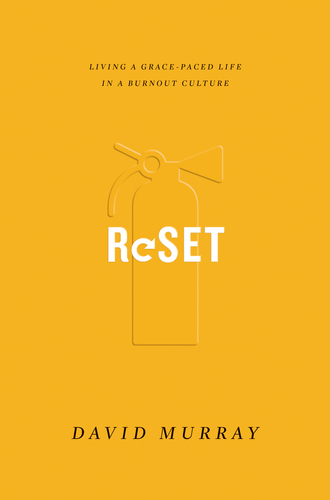
Reset: Living a Grace-Paced Life in a Burnout Culture

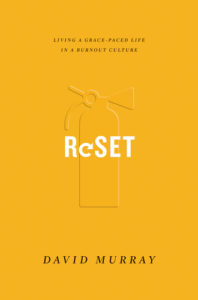
Murray ran into a health crisis when he was in his forties due to stress and overwork. God led him to rediscover God’s mercy and slow down establishing “patterns and rhythms that will help [the reader] live a grace-paced life.”
He uses the analogy of automobile repair bays. As you enter each “bay” you are walked through steps to not only repair and restore the immediate symptoms, but to take steps to live life in a way that you can remain healthy. I’m sure I’m not alone in finding the fact that one of the first steps immediately after “reality check” and “review” is “rest.” In fact, of the ten “repair bays” virtually all of them force the reader to slow down as they do things such as review, rest, relax, rethink, and reduce. Murray repeatedly uses the phrase “grace-paced” throughout the book. This is in such contrast to the ordinary me-driven burnout speed our culture tends to live in. Slowing down and allowing God’s Word to rejuvenate and recharge us will certainly help us to avoid the downward spiral of burnout that is so common around us and in which many of us (myself included) are in danger.
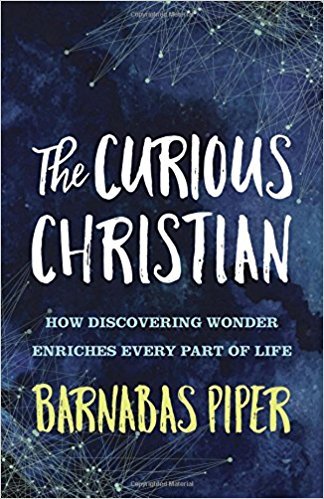
The Curious Christian

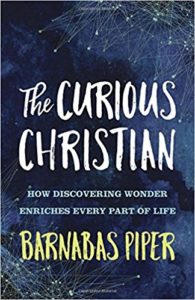 Would you say you are a curious person? For some, curiosity is a characteristic they wear proudly and openly and they constantly ask questions. Who? Why? What? Why? Where? Why? When? Why? How? Why? The questions and the “Why?” keeps coming. Others wear their curiosity more secretly. Sometimes, we might call them the “learners.” They are constantly reading, and looking for sources. They live and breathe “Google” and their bookshelves, Kindles, and search history lists show clearly the wide diversity of subjects in which they are curious. Then, there are some who suppress their curiosity. Perhaps, someone once challenged their natural curiosity as resisting absolute truth or authority, and so they learned to stop asking questions for fear that wasn’t what Christians should do. Still others would say that the questions like these keep us from getting things done. They would say that curiosity is a distraction from productivity.
Would you say you are a curious person? For some, curiosity is a characteristic they wear proudly and openly and they constantly ask questions. Who? Why? What? Why? Where? Why? When? Why? How? Why? The questions and the “Why?” keeps coming. Others wear their curiosity more secretly. Sometimes, we might call them the “learners.” They are constantly reading, and looking for sources. They live and breathe “Google” and their bookshelves, Kindles, and search history lists show clearly the wide diversity of subjects in which they are curious. Then, there are some who suppress their curiosity. Perhaps, someone once challenged their natural curiosity as resisting absolute truth or authority, and so they learned to stop asking questions for fear that wasn’t what Christians should do. Still others would say that the questions like these keep us from getting things done. They would say that curiosity is a distraction from productivity.
Barnabas Piper challenges the reader to rediscover their curiosity. To rediscover simple wonder. He describes the traits of the truly curious:
- Curiosity is loving – It explores the depths of our unworthiness, God’s love and grace.
- Curiosity is humble – It sees its own limitations and the bigness of God and the world.
- Curiosity is caring – It has a genuine interest in others as image bearers of God.
- Curiosity asks and wonders because it yearns to know.
- Curiosity listens because it genuinely values what others say.
- Curiosity watches and observes loved ones, cultures, news, art…
- Curiosity is tenacious – It seeks to really hear and understand and see.
- Curiosity solves and finds brokenness and problems as opportunities for change.
- Curiosity hopes – Curiosity rests in the hope of God’s faithfulness.
Albert Einstein counseled in 1955, “The important thing is not to stop questions…Never lose holy curiosity.” Piper provides practical steps to encourage curiosity in one’s Christian life and to discover and rediscover the wonder of God’s perfect and sovereign plan.
This book is a great challenge for me to keep asking questions in my own life, to keep learning subjects of diverse interest, and to never stop seeking the wonder of grace. (Reviewed by Pastor Mike)
For more information or to purchase, click here.
————————————————————————
I received a free copy of this book from Moody Publishing in exchange for my honest review here. (Mike Fischer)




